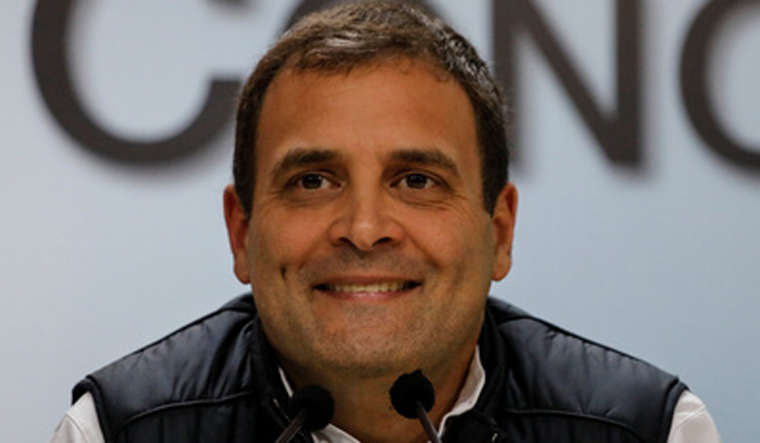Rahul Gandhi promised Universal Basic Income (UBI) for the poor people of the country. “A minimum income guarantee for every poor person is our vision and promise,” said Gandhi. The promise of quasi-UBI came on the very same day former Chief Economic Advisor to the Government of India, Arvind Subramanian along with six others wrote an article in Business Standard on the implementation of quasi-universal basic rural income (QUBRI). “The correct way to think about QUBRI is as help to rural India instead of and replacing other interventions such as loan waivers, and Rythu Bandhu and Kalia, and ideally, also the fertiliser, interest, power and water subsidies whose benefit/cost ratios have been non-compelling,” argued the article written by Arvind Subramanian with 6 economists.
The idea of UBI is being argued in policy circles of NDA since the government came to power. The Economic Survey of 2016-17 written by then CEA Subramanian dedicated a whole chapter of 41 pages to UBI to build the arguments and philosophical framework for UBI. The article in Business Standard argued that direct cash transfer of 1,500 rupees per month to poor people in rural areas could help to end the distress. If the three fourth of the country’s rural population is covered under the scheme then it would cost 2.64 lakh crore rupees or 1.3 percent of the country’s GDP.
The Economic Survey of 2016-17 argued that some of the inefficient centrally sponsored and central sub-schemes could be done away with to accumulate fiscal resources for UBI. All of these schemes cost around 5.2 percent of GDP against central government spending 12 percent of GDP. If some of these inefficient schemes like fertilizer subsidy, power subsidy is done away with, QUBRI could be implemented with almost one-tenth of total spending.
However, the implementation of Universal Basic Income would require vast financial infrastructure and financial resources. The phasing out of the existing subsidies scheme will take time and effort. The funding of existing schemes is very complex with financial burden divided between central government, state government and in some cases even local governments. Thousands of people employed to implement these schemes would lose their jobs and these people need to be transferred to other sections of government.
The Congress party very easily picked up the idea of NDA government and promised to implement it. But the real question is whether they have intellectual resources and execution ability to implement the idea. The various existing inefficient schemes are legacy of Congress governments. UBI is being discussed to do away with these inefficient schemes. If the Congress government has not been able to implement previous schemes, how the party could be trusted with the implementation of UBI which is far more complex and needs more financial resources.
Congress party is very good at taking credit for the hard work of others. Its cronies in the media help the party with it. The economic growth in the first term of UPA government was due to reforms of Vajpayee led NDA government but the Congress party never bothered to credit the late prime minister for this.
